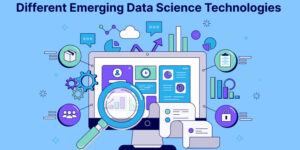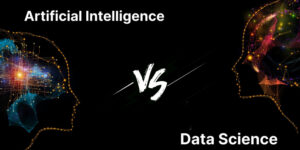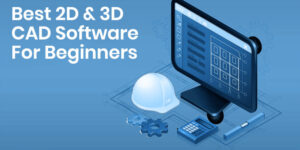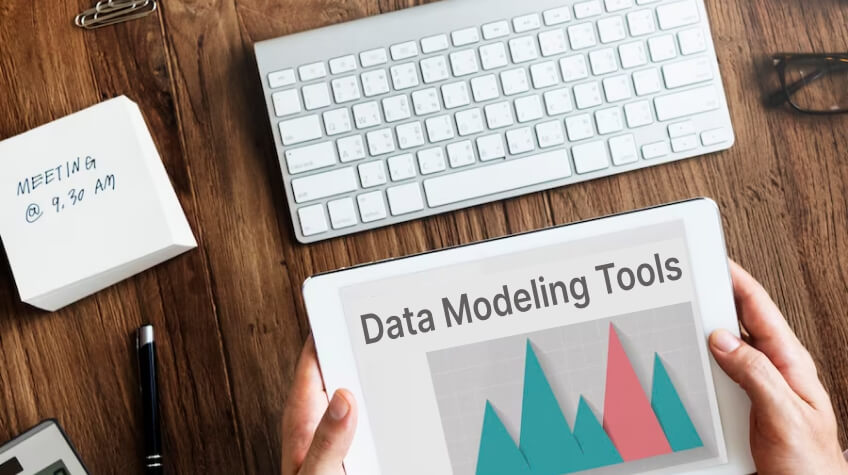
Data modeling is a crucial procedure in managing and analyzing data. It is the process of creating visual representations of relationships and data structures which aids in the research, organization, and management of huge data sets. With the growing quantity of data generated by both organizations and businesses and organizations, the need for effective tools for modeling data has become more important than ever.
A variety of data modeling tools on the market have a range of capabilities and features to design or modify data models. These tools allow users to build and maintain sophisticated models of data and automate data mapping and produce diagrams of data flow. In this post, we’ll look at the ten best data modeling tools to assist managers and data analysts build efficient and scalable models of data.
What are the tools for modeling data?
Software tools for data modeling are programs created to design, edit and maintain data models. They provide visual representations of complex data structures and relationships which aid in the organization and analysis of massive data collections.
Data modeling tools help managers and data analysts to develop effective and scalable models of data that automate data mapping and create diagrams of data flow. Due to the ever-growing amount of data produced by companies and organizations, Data modeling tools are more important than ever. These tools assist users to improve the efficiency of their data management processes as well as ensure the accuracy of data and enhance the analysis of data.
What are the different types of models for data?
There are three kinds of models for data: conceptual, physical, and logical. A conceptual model of data represents high-level business concepts as well as their connections, which are independent of any database technology or structure. Logical models of data describe the data in greater detail regarding attributes, relationships, and constraints. They are not tied to any physical implementation and can be utilized to connect with stakeholders.
Physical data models explain the way data is stored within the database management systems (DBMS) and provide specifics like data types, indexes, and keys. Database administrators and developers utilize these models to optimize and implement the database. Each type of model is designed to serve a specific function and is utilized at various levels of the process of data modeling.
Which are the main factors to consider when choosing that?
Selecting the best software for data modeling is a crucial choice that will affect the effectiveness of your modeling efforts. There are numerous things to take into consideration when selecting an appropriate data modeling tool. The most important are the specific features and capabilities, like the capability to build conceptual physical, logical, and conceptual data models forward engineering, reverse engineering, and mapping data.
Another aspect to take into consideration is the degree of user-friendliness as well as the support and customization options that the tool provides. Other crucial aspects to consider include the price of the tool, it’s capacity and compatibility with other platforms and systems, as well as the degree of privacy and security it offers. In the end, the ideal tool for a company is determined by the specific requirements and needs of the organization.
1. Luna Modeler
Luna Modeler is a popular software for modeling data that provides advanced options to create and manage data models. The most important features are:
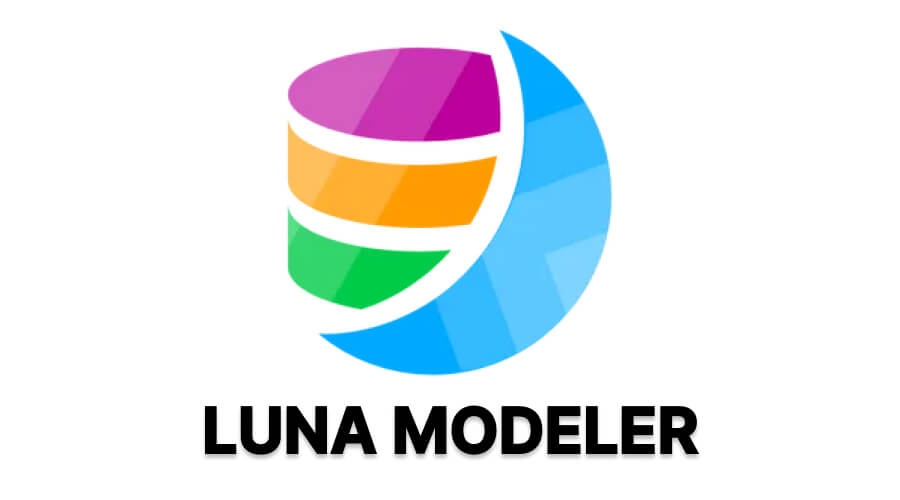
- A user-friendly and intuitive interface that facilitates ease of navigation and efficient modeling.
- The capability to build a conceptual physical, logical, and conceptual model of data, as well as reverse engineering in addition to forward engineering capability.
- Support for various databases management platforms (DBMS) which include Oracle, MySQL, PostgreSQL, along with Microsoft SQL Server.
- Templates for data modeling that can be customized to meet specific user needs.
- Advanced collaboration tools that permit real-time team collaboration as well as revision control.
- Data capability for mapping and synchronization allows users to automatically map data between various databases and systems.
- A robust engine for reporting that can produce customizable reports based on data models and their relevant metadata.
- The support in SQL code generation allows users to rapidly create SQL scripts that create and edit databases.
Moon Modeler is a powerful and flexible data model tool that helps organizations simplify their processes for modeling data and enhance their data management.
2. Amundsen
Amundsen is a well-known open-source software for data modeling that comes with various options for managing and visualizing models of data. The most important features are:

- Collaboration tools enable users to collaborate and share data models with team members in real time.
- Data features for lineage analysis and impact analysis allow users to monitor the movement of data and determine the impact of modifications to models for data.
- Integration with popular enterprise intelligence (BI) and tools for visualization of data like Tableau or Looker.
- Customizable alerts and notifications ensure that users are aware of changes to data models as well as sources.
- Support for managing metadata allows users to manage and capture metadata related to data models and other sources.
Amundsen is a highly effective data model tool that could aid organizations in streamlining their processes for modeling data and enhancing their data management. Its integration with the most popular databases and BI tools is an appealing option for companies looking to improve their capabilities in data analytics.
3. ER/ Studio
ER/Studio is a popular software for modeling data that provides an array of sophisticated features to create and manage models of data. Some of the major features are:

- Support for all conceptual physical, logical, and conceptual models of data reverse engineering, as well as the ability to forward engineer.
- Templates that can be customized for data models let users create quickly models that are suited to the specific requirements of the business.
- Collaborative features permit real-time team collaboration as well as revision control.
- Advanced data mapping and synchronization capabilities allow users to automatically map data across different databases and systems.
- Support for managing metadata allows users to manage and capture metadata that is associated with sources and data models.
- Reports and documents that can be customized enable users to produce complete reports on models of data and the associated metadata.
- Integration with popular data storage tools and Tools for BI such as Hadoop, Tableau, and Power BI.
ER/Studio is a robust and flexible tool for data modeling that helps organizations simplify their processes for modeling data and enhance their data management. Its wide range of support for various DBMS and its integration with the most popular BI tools makes it a great option for businesses who want to increase their capabilities for data analytics.
4. Archi
Archi is a free, open-source data modeling tool that provides several tools for managing and creating data models. The principal features are:
- A user-friendly interface for simple navigation and effective modeling.
- Support for various types of data modeling, such as ArchiMate BPMN, ArchiMate, along with UML.
- Modifiable templates for data models allow users to quickly build data models that satisfy specific business needs.
- Features for collaboration that permit real-time collaboration between teams and revision control.
- The capability to create reports and documents for models of data makes it easy to share data with key stakeholders.
- Support for metadata management allows users to manage and capture metadata that is associated with sources and data models.
Archi is a flexible and flexible tool for data modeling that helps organizations simplify their processes for modeling data and enhance their data management. Its support for a variety of types of modeling notations as well as its integration with other tools, makes it appealing to organizations searching for an open-source solution for data modeling.
5. Ervin Data Modeler
Erwin Data Modeler is a popular data modeling tool that provides sophisticated features to create and manage data models. The principal features are:
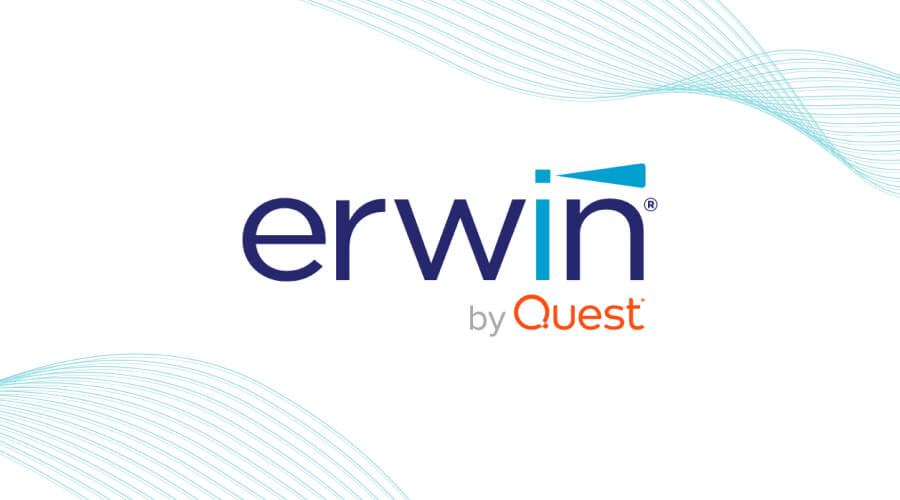
- Complete support for conceptual physical, logical, and conceptual models of data reverse engineering, as well as the ability to forward engineer.
- The capability to design data models for different databases management platforms (DBMS) which include Oracle, SQL Server, IBM DB2, and more.
- Modifiable templates for data models let users quickly build data models that meet certain business needs.
- Collaborative features permit real-time collaboration among teams as well as the control of the version.
- Advanced capabilities for data mapping and synchronization allow users to transfer data between various systems and databases in real time.
- Support for managing metadata enables users to manage and capture metadata associated with sources and data models.
- Customizable reports and documents enable users to produce extensive reports about data models as well as their metadata.
- Integration with popular data storage tools and Tools for BI like Hadoop, Tableau, and Power BI.
Erwin Data Modeler is a robust and flexible tool for data modeling that helps organizations simplify their processes for modeling data and enhance their data management. Its wide range of support for various DBMS and its integration with well-known BI tools makes it an appealing option for companies who want to increase their capabilities in data analytics.
6. SQL Database Modeler
SQL Database Modeler is a web-based tool to model data which provides a wide range of options for managing and creating models of data. The most important features are:
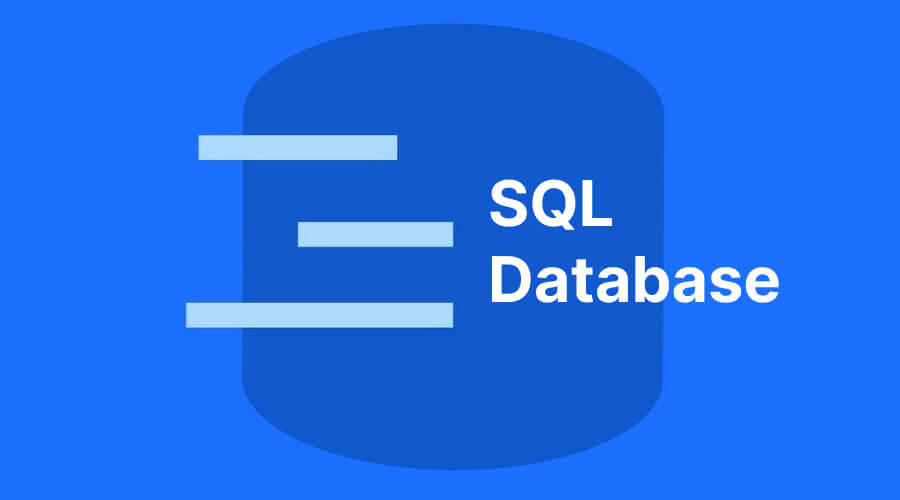
- The API supports a broad variety of database administration systems (DBMS) that include MySQL, Oracle, PostgreSQL as well as SQL Server.
- The capability to export and import data models in a variety of formats that include SQL, XML, and ERD.
- A user-friendly interface for simple navigation and efficient modeling.
- Modifiable templates for data models allow users to create quickly models of data that satisfy the specific requirements of the business.
- Collaborative features enable real-time collaboration between teams and control of versions.
- Support for managing metadata enables users to manage and capture metadata that is associated with sources and models of data.
- The capability to generate reports and documents for data models makes it easier to share data with key stakeholders.
SQL Database Modeler is a flexible and user-friendly data modeling tool which can assist organizations in streamlining their data modeling procedures and improving their management of data. Its ability to work with several DBMS and templates that can be customized makes it a desirable choice for businesses looking for an online data modeling tool.
7. DTM Data Modeler
DTM Data Modeler is a powerful data modeling tool that provides many advanced features to create and manage models of data. Some of the most important features are:

- Support to conceptual physical and data model, reverse engineering, and forward engineering capability.
- The capability to build data models for a variety of databases management software (DBMS) that include MySQL, Oracle, PostgreSQL, SQL Server, and more.
- Templates that can be customized for data models let users quickly build models of data that satisfy specific business needs.
- Collaborative features permit real-time collaboration between teams and also the control of version.
- Advanced capabilities for data mapping and synchronization enable users to automatically map data across different databases and systems.
- Support for metadata management allows users to record and manage metadata related to data models and other sources.
- Customizable reports and documents enable users to produce extensive reports about data models as well as their metadata.
- Integration with the most popular BI tools for data storage, like Tableau, QlikView, and Amazon S3.
DTM Data Modeler is a versatile and robust data model tool that could aid organizations in streamlining their processes for modeling data and enhancing their data management. Its wide range of support for various DBMS and its integration with the most popular BI tools makes it an appealing option for companies who want to increase their capabilities in data analytics.
8. Oracle SQL Developer Data Modeler
Oracle SQL Developer Data Modeler is a complete tool for modeling data that provides advanced options to create and manage data models. Its most important features are:
- The support is available for a broad array of databases management software (DBMS) that include Oracle, MySQL, SQL Server, and many more.
- The capability to create and modify database designs with an intuitive interface.
- Support for all conceptual physical, logical, and conceptual models of data, reverse engineering, as well as forward-engineering capabilities.
- Templates that can be customized for data models allow users to create quickly data models that meet certain business needs.
- Collaborative features enable real-time team collaboration as well as control of the version.
- Advanced capabilities for data mapping and synchronization enable users to automatically map data across different databases and systems.
- Support for metadata management allows users to record and manage metadata related to data models and sources.
- Integration with popular data storage tools and Tools for BI like Hadoop, Hive, and Tableau.
Oracle SQL Developer Data Modeler is a powerful and flexible data model tool that could aid organizations in streamlining their processes for modeling data and enhancing their data management. The extensive support it offers for various DBMS and its integration with popular BI tools makes it a desirable option for businesses who want to increase their capabilities in data analytics.
9. MYSQL Workbench
MySQL Workbench is a comprehensive software for modeling data that offers a range of tools for creating and managing models of data. The key features are:
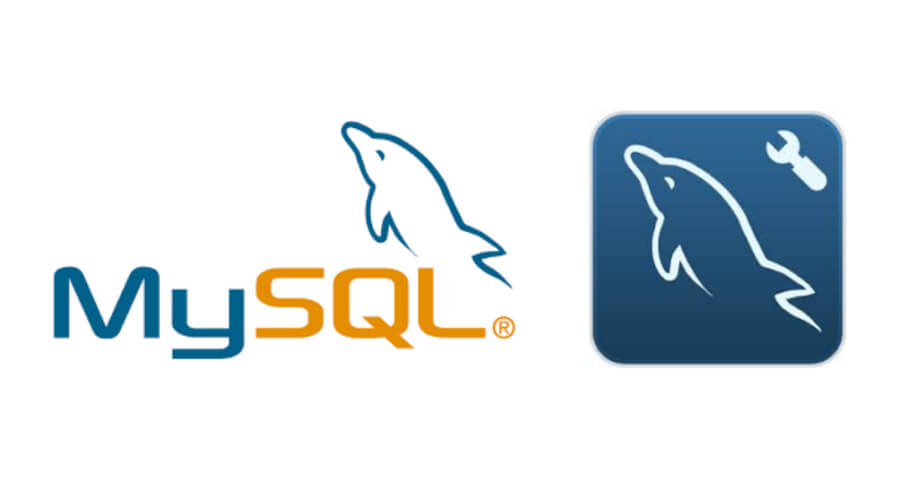
- It supports a diverse array of database administration systems (DBMS) that include MySQL, MariaDB, and Oracle.
- The capability to design and edit database designs by using an intuitive graphic interface.
- Complete support of conceptual and logical, and physical models for data reverse engineering, as well as forward capabilities in engineering.
- Modifiable templates for data models allow users to quickly build models of data that satisfy particular business needs.
- Collaborative features permit real-time collaboration between teams and revision control.
- Advanced data mapping and synchronization capabilities which allow users to automatically map data between databases and different systems.
- Support for managing metadata allows users to record and manage metadata that is associated with sources and models of data.
- Integration with the most popular data storage systems and tools for BI like Tableau or Excel.
MySQL Workbench is a flexible and user-friendly data model tool which can assist organizations in streamlining their processes for modeling data and improve their data management. Its broad support for multiple DBMS and its customizable templates make it a desirable option for businesses seeking robust but simple data modeling software.
10. DBSchema
DBSchema is a well-known software for data modeling that provides advanced capabilities to create and manage models of data. The principal features include:
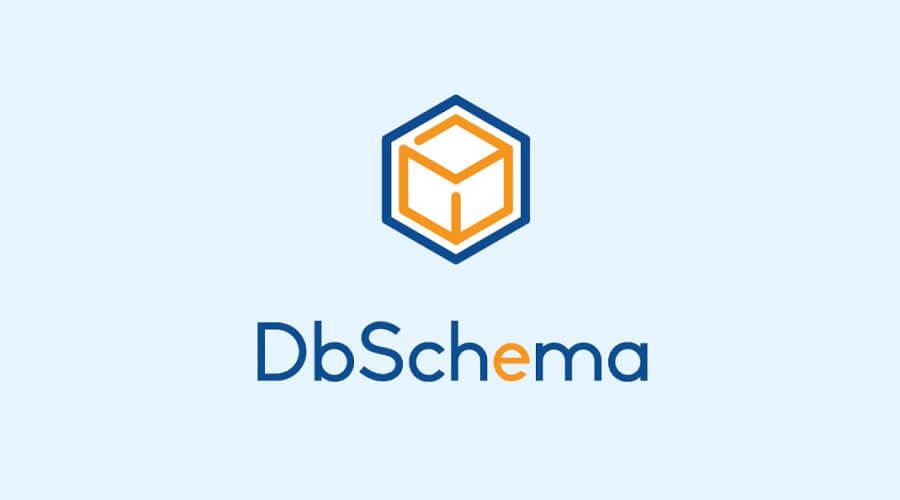
- Support for a broad variety of database administration systems (DBMS) that include Oracle, MySQL, PostgreSQL, SQL Server, and many more.
- The capability to design and modify database designs with an intuitive interface for graphics, with assistance for Entity Relationship (ER) model, UML, and other information modeling terms.
- Complete support for conceptual physical, logical, and conceptual models of data reverse engineering, as well as advanced engineering features.
- Templates that can be customized for data models let users quickly build data models that satisfy certain business requirements.
- Features for collaboration enable real-time team collaboration as well as control of versions.
- Advanced capabilities for data mapping and synchronization enable users to automatically map data between databases and different systems.
- Support for managing metadata allows users to manage and capture metadata that is associated with data models and other sources.
- Integration with popular data storage tools and Tools for BI such as Tableau or Excel.
DBSchema is an adaptable and powerful data model tool that can assist organizations to streamline their processes of modeling data and improve their management of data. Its broad support for multiple DBMS and flexible templates make it a desirable choice for businesses searching for a comprehensive model of data.
In the end, Data modeling tools are vital for businesses that can effectively manage and analyze data. The market has a wide range of data modeling tools with diverse capabilities, ranging from basic modeling up to advanced capabilities like the mapping of data, synchronization, and management of metadata.
The ten best data modeling tools we have discussed with you – Luna Modeler, Amundsen, ER/Studio, Archi, Erwin Data Modeler, SQL Database Modeler, DTM Data Modeler, Oracle SQL Developer Data Modeler, MySQL Workbench, and DBSchema are among the top in the marketplace, providing an array of tools that help businesses build and manage their models of data.
When choosing a data modeling tool, it’s important to take into consideration aspects like compatibility with other DBMS as well as user-friendliness features for collaboration, and the possibility of customization. Selecting the appropriate software for data modeling is contingent upon the needs of an organization and its requirements. However, any of the ten tools listed here could be an excellent option for companies looking to enhance their processes for managing data.



